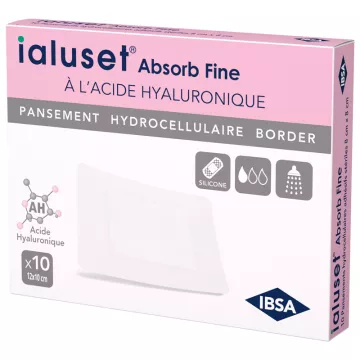What is a wound and how does it form?
A wound is a break in the skin or underlying tissue, usually resulting from injury or trauma. Wounds can be caused by cuts, scrapes, punctures or burns. When a wound forms, it exposes internal tissues to the external environment, increasing the risk of infection and requiring appropriate wound care to promote healing.
What are the different types of wound?
There are several types of wound:
- Acute wounds: These form rapidly and heal within a few days or weeks, such as cuts and scrapes.
- Chronic wounds: These persist for more than three months, often due to underlying conditions such as diabetes or pressure ulcers.
- Open wounds: These include cuts, lacerations and surgical wounds.
- Closed wounds: These include bruises and hematomas.
How do I clean a wound?
To clean a wound effectively
- Wash your hands with soap and water.
- Use saline solution or clean water to gently rinse the wound.
- Avoid harsh antiseptics such as alcohol or hydrogen peroxide, which can damage tissue.
- Gently dry the area with a sterile compress.
What are the signs of wound infection?
Common signs of infection include:
- Redness around the wound
- Pain or increased sensitivity
- Swelling
- Pus or discharge
- Fever If these symptoms appear, consult a healthcare professional for appropriate wound care.
How do I choose a wound dressing?
The choice of dressing depends on the type and size of the wound. Options include:
- Adhesive dressings for small cuts and scrapes.
- Sterile gauze for larger or weeping wounds.
- Hydrocolloids to maintain a moist environment for healing.
- Antimicrobial dressings to prevent infection.
Why is it important to keep a wound moist?
Keeping a wound moist promotes faster healing and reduces the risk of scab formation, which can delay tissue repair. Moist environments also encourage the migration of cells needed for tissue repair.
What are the best products for wound care?
The best products for wound care include:
- Sterile saline solutions for cleansing.
- Antibiotic ointments to prevent infection.
- Moisturizing creams to maintain moisture.
- Specialized dressings such as hydrocolloids or hydrogels.
How to treat a surgical wound
Treatment of surgical wounds includes:
- Keeping the area clean and dry.
- Following your surgeon's instructions for dressing changes.
- Watch for signs of infection.
- Avoiding activities that could reopen the wound.
What are advanced wound care techniques?
Advanced techniques include :
- Negative pressure therapy: Used for chronic wounds, it helps to remove fluids and promote blood circulation.
- Biological therapies: such as skin grafts and dermal substitutes.
- Light-based therapies: Used to accelerate healing.
When should a wound be professionally treated?
Consult a professional if :
- The wound is deep or keeps bleeding.
- There are signs of infection.
- The wound does not show signs of healing after a few days.
- You have underlying conditions such as diabetes that may complicate healing.
Wound care is crucial to prevent infection and promote rapid healing. By following these recommendations and using the right products, you can ensure effective wound management and maintain the health of your skin.
How important is regular dressing change?
Regular dressing changes are essential to :
- Prevent infection by reducing bacterial growth.
- Monitor wound progress and detect any complications early.
- Maintain an optimal healingenvironment by adjusting humidity and protection conditions.
How to treat wounds in diabetic patients?
Diabetic wounds require special attention:
- Strict control of blood sugar levels to promote healing.
- Daily woundcleansing with sterile saline solution.
- Use of specialized dressings for chronic wounds.
- Regular monitoring by a healthcare professional to detect early complications.
What are the possible complications of untreated wounds?
Complications of untreated wounds include
- Local infection, which may develop into cellulitis or abscess.
- Sepsis, if the infection spreads into the bloodstream.
- Delayed or chronic woundhealing.
- Formation of hypertrophic or keloidscars.
What role does nutrition play in wound healing?
Good nutrition is crucial to wound healing:
- Proteins: Essential for tissue repair.
- Vitamin C: Promotes collagen production.
- Zinc: Plays a role in cell regeneration.
- Hydration: Essential for maintaining skin elasticity and cellular function.
What are the benefits of silver-based dressings?
Silver-based dressings offer several advantages:
- Antimicrobial properties: Silver reduces the bacterial load.
- Promotes a healing environment by maintaining optimal moisture.
- Reduced inflammation: Helps reduce pain and swelling.
- Fewer dressing changes required thanks to prolonged efficacy.
